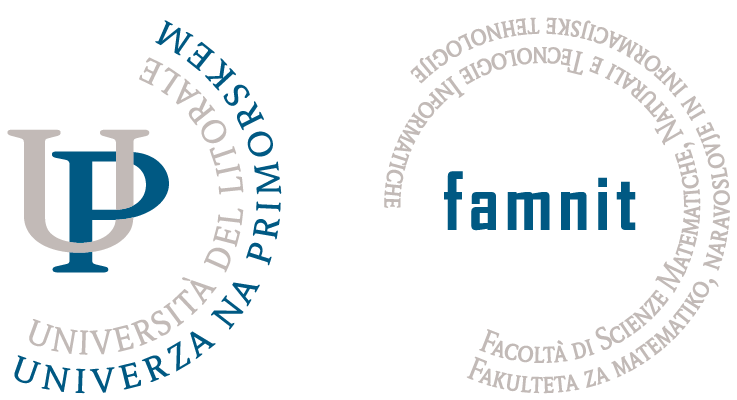Ekonomika informacij in robustne institucije
The seminar will be held by Prof. Jernej Čopič, PhD (Aix-Marseille School of Economics and Center for Economic Research and Graduate Education – CERGE-EI) from April to June 2018.
All sessions will be delivered in English language.
DATES:
Wednesday 18 April 2018 (16:00-18:00), location: FAMNIT-Muzejski1
Tuesday 24 April 2018 (18:00-20:00), location: FAMNIT-MP1
Wednesday 9 May (13:00-14:00 and 20:00-21:00), location: Famnit-Muzejski3
Monday 14 May (17.30-19.30), location: Famnit-Muzejski3
Wednesday 16 May (13:30-15:30), location: Famnit-POŠTA
Tuesday 29 May (16:30-18:30), location: Famnit-Muzejski3
Wednesday 30 May (16:30-18:30), location: Famnit-Muzejski4
Thursday 7 June (16:30-18:30), location: Famnit-Muzejski1
Friday 8 June (16:30-18:30), location: Famnit-Muzejski1
ABOUT THE SEMINAR:
In this seminar we will be firstly cover some basic concepts of Game Theory, i.e., Nash equilibrium and dominant strategy equilibrium under complete information. Then we will move to the setting of incomplete information and equilibrium concepts suitable for robust analysis, i.e., ex post Nash equilibrium and dominant-strategy equilibrium under incomplete information (strategy proofness). In both of these settings, complete and incomplete information, we will then consider concepts of economic efficiency: Pareto efficiency (classical efficiency) and constrained Pareto efficiency. Next, we will formulate and prove the revelation principle under incomplete information and move to the question of maximally efficient economic institutions.
We will commence with the well-known class of allocation schemes, the so-called Vickrey-Clarke-Groves mechanisms, which satisfy equilibrium conditions (incentive compatibility) and have seen wide applications in Economics and Computer Science. However, these allocation schemes in general fail some desirable properties: either they may fail to satisfy budgetary constraints or they may fail the requirement that the participation of economic actors is voluntary (individual rationality).
We will thus move on to address the question of existence and maximal possible efficiency of desirable allocation schemes, which along with the equilibrium conditions satisfy all desiderata. We will broach these questions in the following economic settings:
Market settings:
Auctions
Double Auctions
more general market platforms
Non-market settings:
Public goods
Voting (time permitting)
Structure and requirements: After a brief introductory lecture, the format of the ensuing sessions will be as follows.
A list of scholarly articles will be made available well in advance of the session.
Each student will read at least one (or more) articles pertaining to the next session.
Prior to the beginning of the session each student will be expected to turn in a short summary of the article(s) she/he had read.
In class the seminar will proceed in part as a formal presentation of the materials and in part as a discussion of the required readings.
Students will be graded on the basis of their written summaries and participation in the discussion.
Students will be expected to attend all sessions.
A structured list of topics and readings (by sessions) as well as supplementary literature will be appended as the seminar proceeds.
Required prior knowledge:
Linear Algebra.
basic Probability Theory.
basic notions from Topology.
Real Analysis.
Readings:
Announced prior to the first session and then appended as the seminar proceeds.
